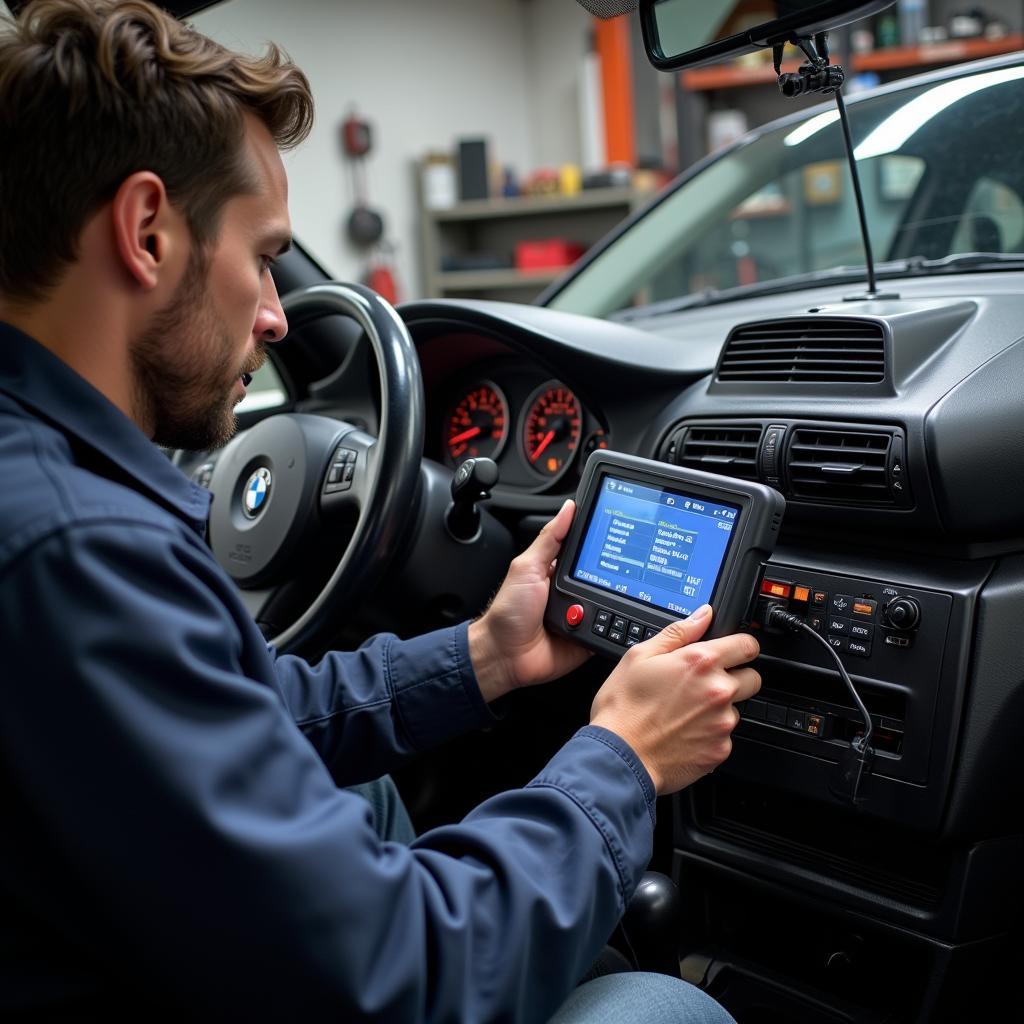A Scan Tool Pid Definition is essential for diagnosing and repairing modern vehicles. PIDs, or Parameter IDs, are standardized codes that allow your scan tool to communicate with your car’s computer and access a wealth of data about your engine’s performance, emissions, and more.
What is a Scan Tool PID?
[image-1|scan-tool-pid-example|Scan Tool PID Example| A screenshot of a scan tool displaying various PIDs and their corresponding values. The screen shows real-time data such as engine RPM, coolant temperature, and oxygen sensor readings.]
In simple terms, a PID is like a name tag for a specific piece of data stored within your car’s computer, the Engine Control Unit (ECU). When you connect your scan tool, it sends a request using these PIDs to retrieve information from the ECU. This information is then displayed on your scan tool’s screen, providing valuable insights into your vehicle’s health and performance.
Why is Understanding Scan Tool PID Definition Important?
Knowing the definition of different PIDs is crucial for:
- Accurate Diagnosis: By reading the right PIDs, you can pinpoint the root cause of a problem instead of just addressing the symptoms.
- Effective Repairs: PIDs can help you verify whether a repair has been successful and ensure that all systems are functioning correctly.
- Improved Performance: Monitoring certain PIDs can help you optimize your engine’s performance and fuel efficiency.
Common Scan Tool PIDs and Their Definitions:
Let’s explore some commonly used scan tool PIDs:
Engine Speed (RPM): This PID indicates the speed at which the engine’s crankshaft is rotating.
- Useful for: Diagnosing misfires, rough idling, and transmission issues.
Coolant Temperature: This PID shows the engine coolant temperature.
- Useful for: Identifying overheating problems, thermostat malfunctions, and potential head gasket issues.
Oxygen Sensor (O2) Readings: These PIDs display the amount of oxygen in the exhaust gases.
- Useful for: Diagnosing problems with the fuel system, catalytic converter, and oxygen sensors themselves.
Manifold Absolute Pressure (MAP): This PID measures the pressure inside the intake manifold.
- Useful for: Diagnosing issues with the turbocharger or supercharger, intake leaks, and sensor malfunctions.
Mass Air Flow (MAF) Sensor: This PID displays the amount of air entering the engine.
- Useful for: Diagnosing issues with the air filter, MAF sensor, and vacuum leaks.
[image-2|pid-definition-chart|PID Definition Chart| A table listing common PIDs with their descriptions, typical value ranges, and potential issues associated with values outside the normal range.]
Where to Find Scan Tool PID Definitions
-
Vehicle Service Manuals: Your vehicle’s service manual is the most reliable source for PID definitions specific to your make and model.
-
Online Databases: Several websites and forums dedicated to automotive repair provide extensive PID databases.
-
Scan Tool Manufacturers: Many scan tool manufacturers offer detailed documentation and software updates that include PID definitions.
Pro Tip from John Miller, ASE Certified Master Technician: “Don’t rely solely on generic OBD-II PID definitions. Consult your vehicle-specific resources for accurate interpretation.”
Using Scan Tool PIDs Effectively
- Know your tool: Familiarize yourself with your scan tool’s features and how to navigate its menus to access PID information.
- Consult reliable sources: Always verify PID definitions with trusted sources to ensure accurate interpretation.
- Compare data: Don’t just focus on a single PID. Look for patterns and relationships between different parameters for a comprehensive diagnosis.
Remember: A scan tool is just a tool. Understanding scan tool PID definition is crucial for interpreting the data correctly and making informed decisions about your vehicle’s maintenance and repair.
Conclusion
Mastering scan tool PID definition can seem daunting initially, but it’s a worthwhile investment for any car enthusiast or professional mechanic. By utilizing the information provided by PIDs, you gain a deeper understanding of your vehicle’s inner workings and can confidently diagnose and address problems.
Need help deciphering your scan tool’s readings? Contact the experts at ScanToolUS at +1 (641) 206-8880 or visit our office at 1615 S Laramie Ave, Cicero, IL 60804, USA. We’re here to assist you with all your automotive diagnostic needs.

